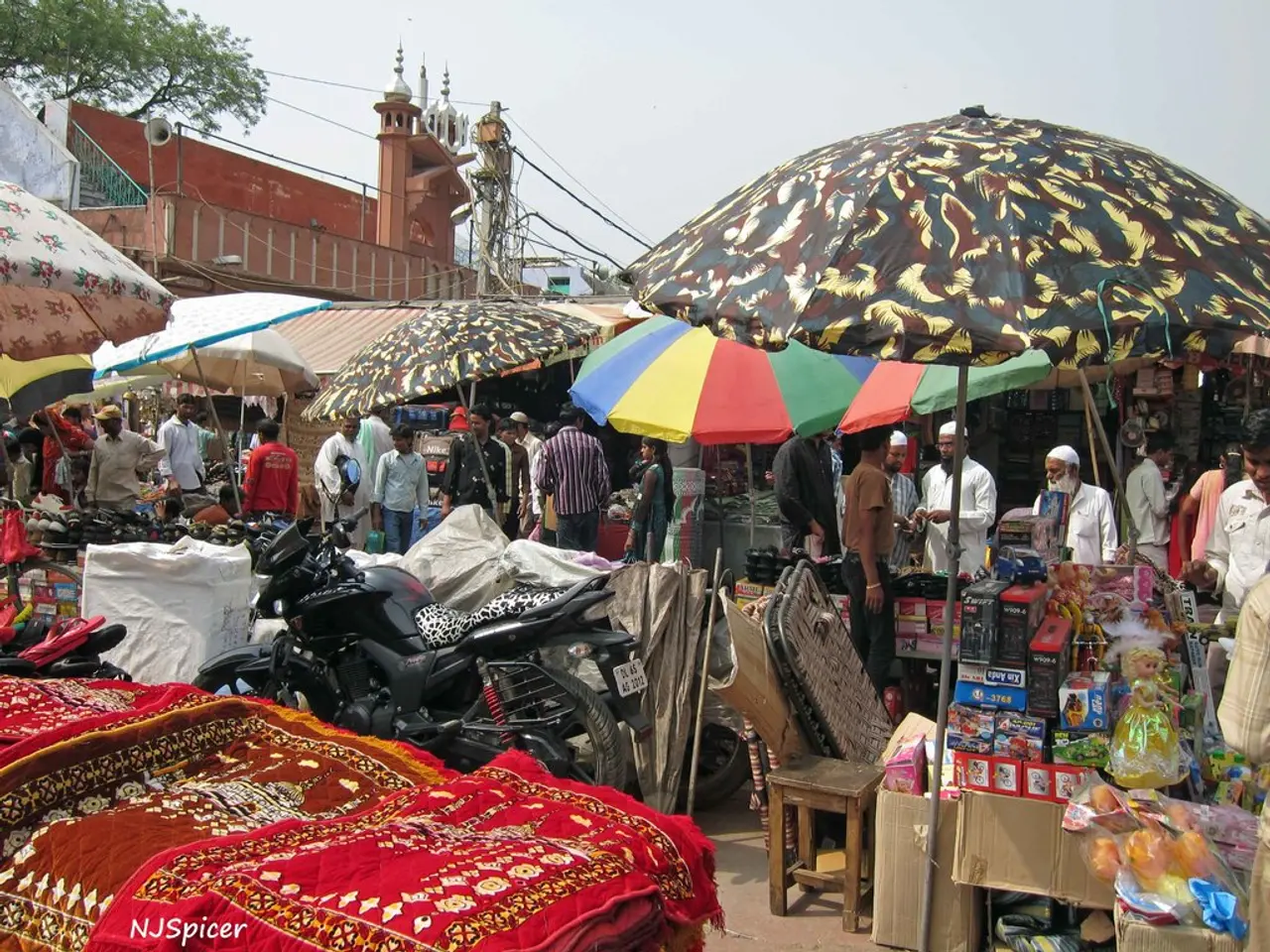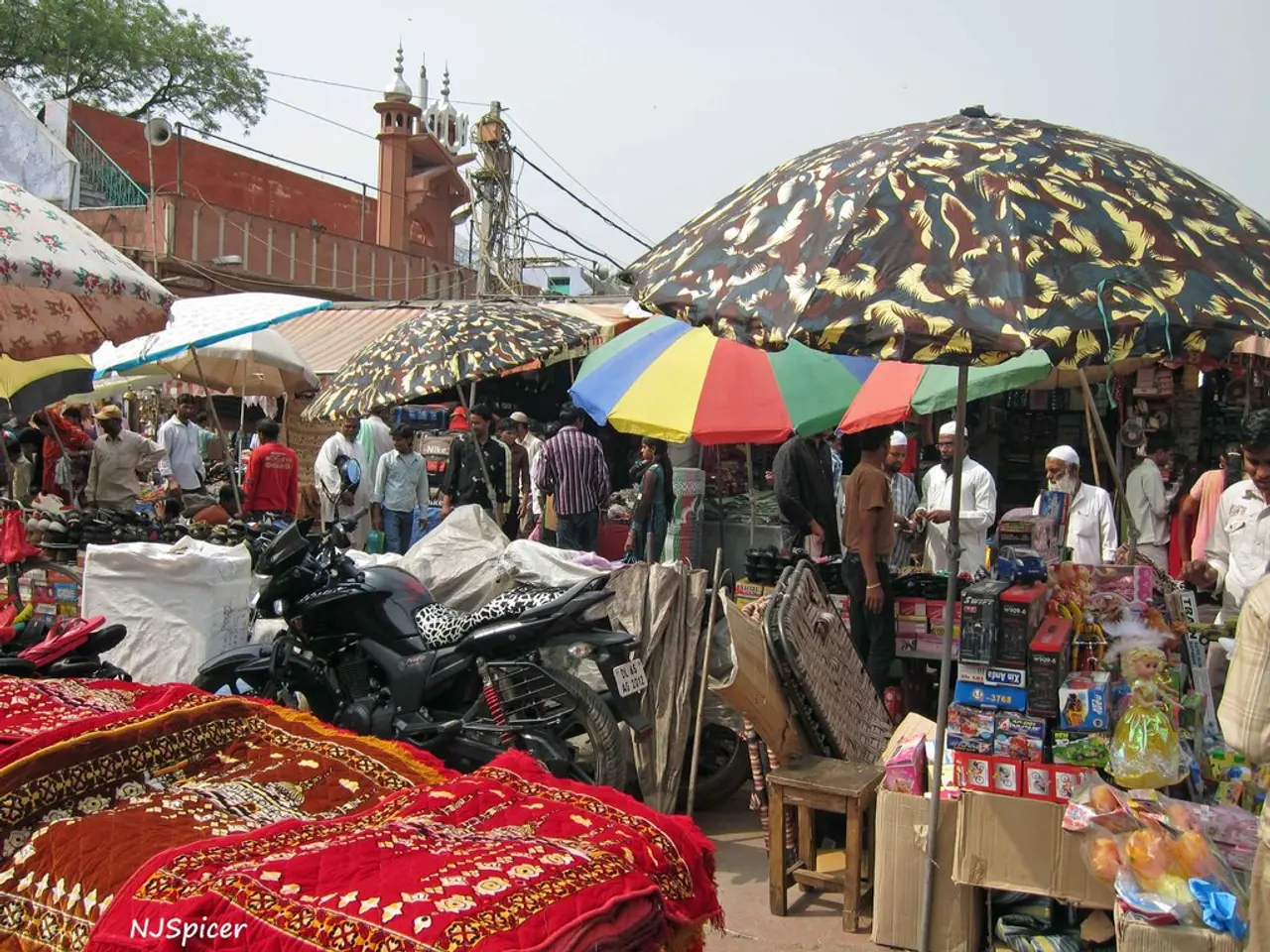World Bank Report: Wars Crippling Economies, Tripling Extreme Poverty
Escalating conflicts contribute significantly to intensified extreme poverty levels, as per the World Bank report.
Hear it loud and clear, folks! According to a fresh report from the World Bank, conflicts worldwide are taking a massive toll on the economy, tripling the number of people grappling with extreme poverty since the early 2000s. That's right; economic stagnation has become the new norm in unstable regions, as these regions stand as the epicenter of global poverty and food insecurity.
This report paints a grim picture, with an estimated 421 million people stranded in a dire situation, clinging onto life with less than $3 a day in conflict-ridden zones this year. Do you know what's alarming? By 2030, that number is predicted to climb to 435 million.
World Bank's Chief Economist, Indermit Gill, explains that while the world's attention has been on the wars in Ukraine and the Middle East, it's essential to acknowledge that in half of the war-torn countries today, these disasters have been ongoing for at least 15 years.
The World Bank has recognized 39 economies that are grappling with conflicts or instability, with (21) still caught in active conflicts as we speak. Some of these include the likes of Ukraine, Somalia, South Sudan, the West Bank, and Gaza Strip.
However, it's essential to remember that not all is lost. There are viable prospects for economic growth in conflict-affected regions. For instance, countries like Zimbabwe, Mozambique, and the Democratic Republic of Congo, rich in minerals needed for electric vehicles and solar panels, have the potential to bounce back.
Let's break it down to get a clear picture:
- In 2000, the number of people living in extreme poverty in conflict zones was significantly smaller than it is today.
- Global poverty rates have generally been on a downward trend since 2000, but the poverty in fragile and conflict-affected states has become increasingly severe.
- The World Bank's updated poverty lines mean that comparisons across the decades must account for changing definitions and purchasing power adjustments.
So, friends, it's high time we sit up and take notice. Let us provide aid, support, and resources to help these nations break free from the shackles of conflict and poverty and fight their way back to prosperity. Let's not let history repeat itself!
Source: ntv.de, afp
Reference(s):
[1] (2021). Extreme Poverty in Conflict-Affected Countries Approaching Half a Billion People. World Bank. https://openknowledge.worldbank.org/handle/10986/36807
[2] (2021). Poverty & Shared Prosperity. World Bank. https://www.worldbank.org/en/topic/poverty/overview
[3] (2021). Update on the World Bank’s Poverty Line: Frequently Asked Questions. World Bank. https://www.worldbank.org/en/topic/poverty/brief/update-on-the-world-banks-poverty-line-frequently-asked-questions
[4] (2020). Explainer: What does it mean to live on $1.90 a day? World Bank. https://blogs.worldbank.org/poverty/explainer-what-does-it-mean-live-190-day-dollar
[5] (2022). World Bank: War, Conflict and Extreme Poverty. Project Syndicate. https://www.project-syndicate.org/commentary/world-bank-war-conflict-extreme-poverty-by-aidan-g-berry-and-shantha-c-boer-2022-06
The report also underscores the necessity of a European strategy for addressing the environmental implications of prolonged wars and conflicts. In the realm of general news, politics, and crime-and-justice, this pressing issue should not be sidelined as it profoundly impacts our collective future.
In the pursuit of global stability and prosperity, it's crucial to work towards conflict resolution and sustainable development, ensuring that war-and-conflict-ridden countries can recover and foster economic growth, ultimately reducing extreme poverty and improving the lives of millions.





